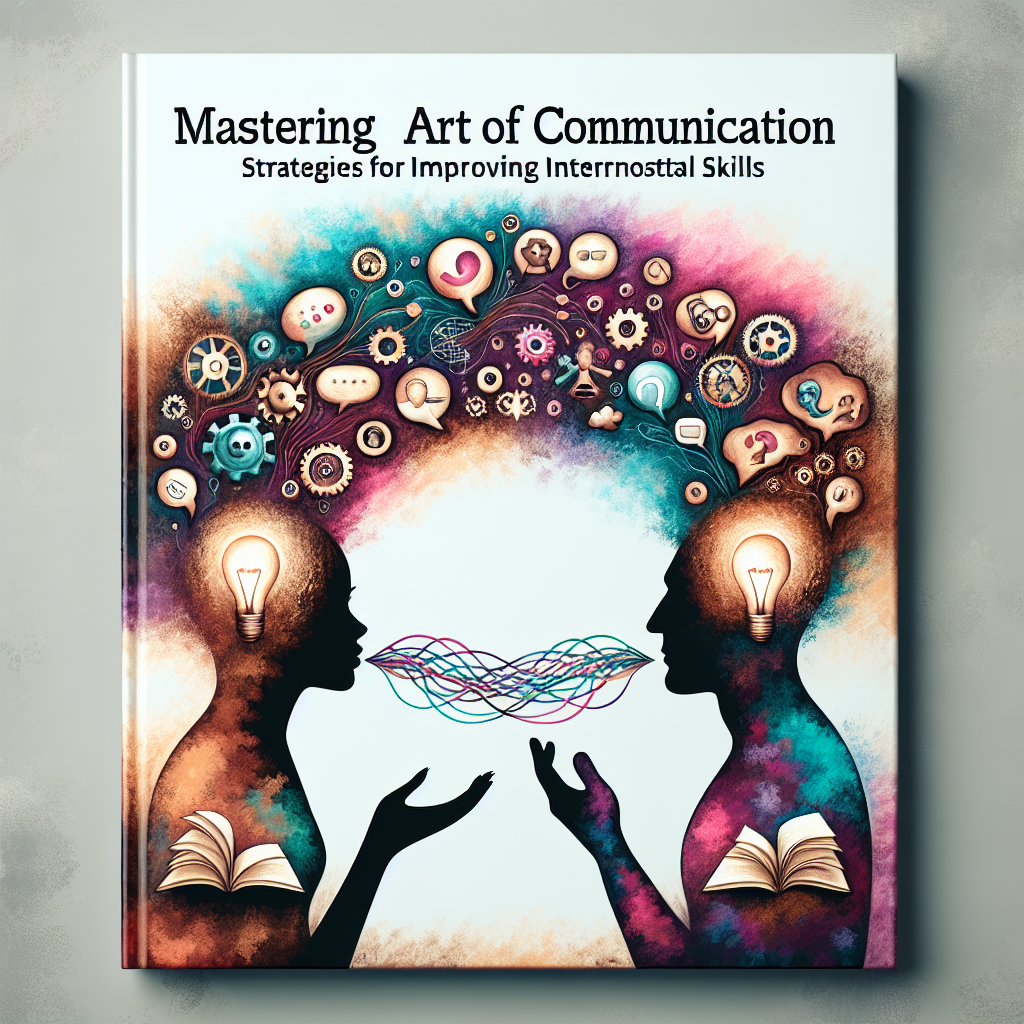In today’s fast-paced and interconnected world, effective communication is a vital skill that can make or break relationships, both professionally and personally. Whether you’re conducting a business meeting, negotiating with a client, or simply trying to connect with a friend, mastering the art of communication is essential for success.
Interpersonal communication involves the exchange of information, ideas, and feelings between individuals. It encompasses both verbal and nonverbal forms of communication and plays a crucial role in building and maintaining relationships. Poor communication can lead to misunderstandings, conflicts, and ultimately, the breakdown of relationships.
Fortunately, effective communication is a skill that can be learned and improved upon with practice. By implementing the following strategies, you can enhance your interpersonal skills and become a more effective communicator in any situation.
1. Active Listening: One of the most important aspects of effective communication is the ability to listen actively. This means fully engaging with the speaker, maintaining eye contact, and showing genuine interest in what they have to say. Avoid interrupting or formulating a response while the other person is speaking. Instead, focus on understanding their perspective and empathizing with their feelings.
2. Clear and Concise Communication: When conveying a message, be clear and concise in your communication. Avoid ambiguous language or jargon that may confuse the listener. Use simple, straightforward language and organize your thoughts before speaking to ensure that your message is delivered effectively.
3. Nonverbal Communication: Nonverbal cues, such as facial expressions, gestures, and body language, play a significant role in communication. Be mindful of your nonverbal signals and ensure that they align with your verbal message. Maintain open body language, make eye contact, and smile to convey warmth and sincerity.
4. Empathy and Understanding: Empathy is the ability to understand and share the feelings of others. By practicing empathy, you can build rapport and trust with others, leading to more meaningful and effective communication. Put yourself in the other person’s shoes and strive to see things from their perspective.
5. Assertiveness: Assertiveness is the ability to express your thoughts, feelings, and needs in a clear and respectful manner. By being assertive, you can communicate your boundaries and expectations effectively while still respecting the rights of others. Avoiding passive or aggressive communication styles can help you maintain healthy relationships and resolve conflicts.
6. Feedback: Providing and receiving feedback is essential for improving communication skills. Seek feedback from others to identify areas for improvement and actively listen to their suggestions. When giving feedback, be specific, constructive, and focused on behaviors rather than personality traits.
By implementing these strategies, you can enhance your interpersonal skills and become a more effective communicator in any situation. Remember that communication is a two-way street, and cultivating strong relationships requires active effort and constant refinement of your communication skills.
FAQs:
1. Why is effective communication important in interpersonal relationships?
Effective communication is essential in interpersonal relationships as it helps build trust, understanding, and mutual respect between individuals. Clear and open communication allows for the resolution of conflicts, the expression of emotions, and the fostering of strong connections.
2. How can I improve my listening skills?
Improving your listening skills involves actively engaging with the speaker, maintaining eye contact, and avoiding distractions. Practice active listening by paraphrasing the speaker’s message, asking clarifying questions, and demonstrating empathy and understanding.
3. What are some common barriers to effective communication?
Common barriers to effective communication include lack of attention, distractions, cultural differences, language barriers, and emotional factors. By identifying and addressing these barriers, you can enhance your communication skills and overcome challenges in interpersonal relationships.





Leave A Comment